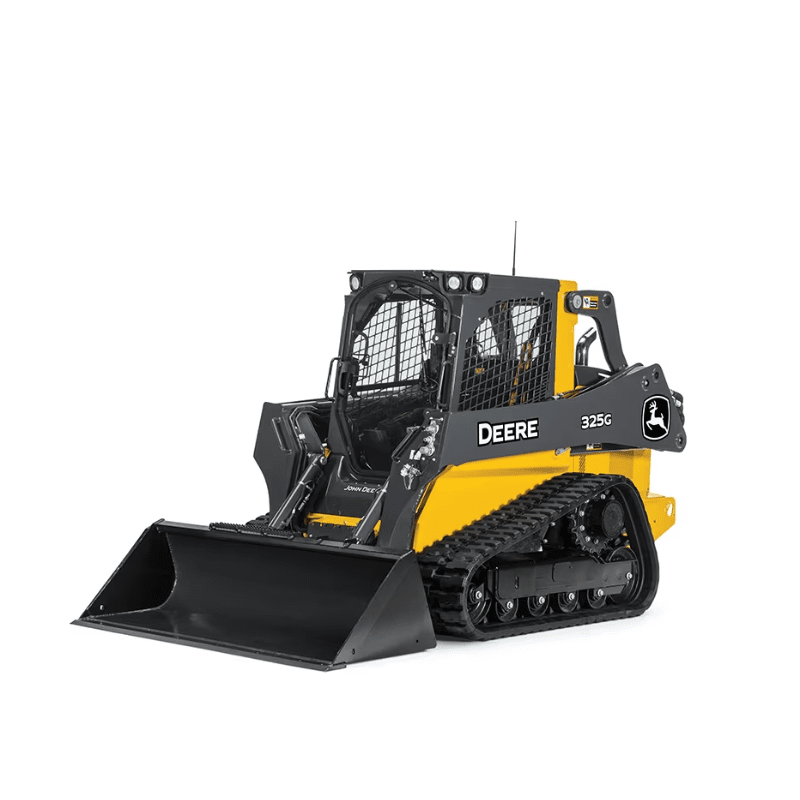Heavy Equipment Rental: Large Equipment for Any Construction Job
Heavy Equipment Rental: Large Equipment for Any Construction Job
Blog Article
Optimize Your Budget by Recognizing the Costs Linked With Building And Construction Devices Rentals
Recognizing the complete extent of costs connected with building devices leasings is crucial for maximizing your spending plan. What strategies can be utilized to successfully manage these prices and ensure a much more effective rental experience?
Overview of Rental Expenses
When considering building and construction equipment rentals, understanding the linked expenses is extremely important for efficient budgeting and task planning. Rental prices can vary significantly based on numerous elements, consisting of tools kind, period of leasing, and area. The preliminary rental cost typically reflects the tools's market demand and its linked functional capabilities, influencing the total expense.
Along with the base rental price, supplementary costs might emerge, such as transportation charges, gas additional charges, and upkeep costs. It is vital to make up these additional expenses to precisely assess the overall expense of renting out tools. Additionally, the rental period can impact prices; longer services might receive discounted rates, while temporary leasings might incur higher everyday fees.

Malfunction of Rental Rates
An extensive understanding of rental rates is essential for contractors and job managers aiming to maximize their budget plans. Rental rates for construction devices normally include several parts, consisting of base rates, time-based fees, and usage fees.
Base prices are the core fees associated with the rental of the tools, commonly figured out by the type and dimension of the machinery. These rates can differ dramatically, affected by variables such as tools demand, availability, and local market trends. Time-based charges, which might be daily, weekly, or monthly, serve to suit various project timelines and rental periods.
Furthermore, rental rates might consist of use fees, which apply when equipment is utilized beyond a specified limit, making sure that the rental business can make up damage. Seasonal demand fluctuations can also impact rental rates, with peak building and construction seasons generally regulating higher costs.
Additionally, comprehending the rental company's policies pertaining to maintenance and insurance policy can offer more insight right into the total cost framework. By examining these components, service providers can make informed decisions, making certain the selection of rental devices aligns with both job needs and budget restrictions.
Extra Charges to Consider
Comprehending the ins and outs of added costs is crucial for specialists to handle their overall rental expenditures properly. Past the basic rental prices, different auxiliary costs can dramatically influence the complete cost of equipment rental. These fees often consist of distribution and pickup charges, which can vary based upon range and logistics included in delivering the devices to and from the job site.
In addition, some rental firms might impose gas additional charges if the devices is returned with less fuel than when rented. It is additionally important to be mindful of potential cleaning costs, especially for specialized equipment that calls for detailed upkeep after usage.

Completely reviewing the rental arrangement and clearing up these added charges upfront can assist professionals make sure and avoid unanticipated costs that spending plans remain undamaged throughout the job lifecycle.
Repair And Maintenance Expenses
Routine repair and maintenance expenses are typically neglected variables that can considerably affect the her response overall expense of construction tools rentals. When leasing tools, it is essential to think about not just the rental costs however additionally the potential expenses linked with maintaining the equipment in optimum operating condition.
Lots of rental firms include basic maintenance as component of the rental contract; nevertheless, extra unanticipated breakdowns or comprehensive repair services can bring about added expenses. It's important to evaluate the rental contract very carefully to understand what maintenance solutions are covered and what duties drop on the renter.
In addition, devices that is not well-maintained can lead to ineffectiveness at work website, possibly boosting and creating hold-ups task costs. To alleviate these threats, it is advisable to perform normal assessments and preserve open communication with the rental supplier relating to any kind of issues that arise during usage.
Insurance Policy and Obligation Expenses
Insurance coverage and obligation costs are critical parts that can dramatically influence the general expense of construction equipment services (boom lift rental). These prices make sure that both the rental business and the client are protected from possible monetary losses arising from mishaps, damage, or burglary during the rental duration

Additionally, customers need to know any kind of deductibles or exclusions in the insurance coverage policy, as these can influence prospective out-of-pocket expenditures. Understanding the terms of any kind of insurance protection is vital to prevent unanticipated costs. Eventually, budgeting for insurance policy and responsibility expenses can aid make certain a smoother rental experience and shield against financial dangers connected with construction jobs.
Verdict
In verdict, a thorough understanding of the costs related to building tools services is important for efficient budget plan monitoring. By assessing rental prices, extra costs, upkeep expenditures, and insurance policy people, demands and companies can decrease unanticipated expenditures. This strategic approach not just boosts cost-effectiveness yet additionally makes certain that jobs look what i found advance smoothly and efficiently. Ultimately, educated decision-making relating to tools services contributes to the general success of building ventures.
Rental expenses can vary considerably based on several variables, including equipment kind, period of leasing, and place (mini excavator rental). The rental duration can impact rates; longer services might qualify for discounted rates, while temporary services may incur higher day-to-day fees
By conducting complete research and engaging with credible rental companies, service providers can efficiently browse the complexities of rental prices, inevitably maximizing their monetary resources.
Past the basic rental prices, different additional costs can dramatically affect the total expense of tools rental. Rental firms typically give liability insurance coverage that covers injuries to 3rd parties or damages to residential property, while tools damage insurance can cover the expense of fixings or substitute if the rented out equipment is damaged.
Report this page